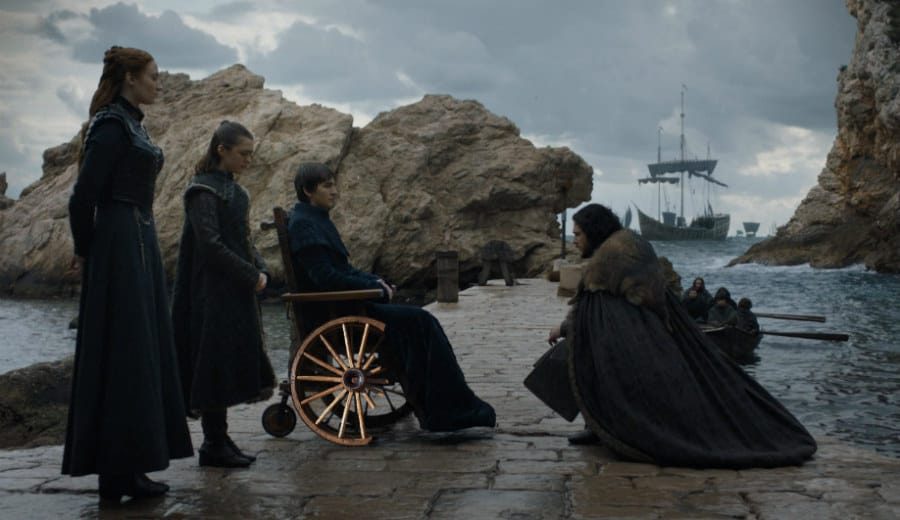
The Witcher's Dark Origins
The Witcher’s Dark Origins: Unpacking the Continent’s Most Fascinating Monster Hunter
Ah, The Witcher - where else can we find a world of mythical creatures, morally ambiguous heroes, and some of the most epic sword fights in modern TV history? As a self-proclaimed Witcherhead (I’ll take it as a badge of honor), I’ve spent countless hours dissecting the show’s narrative, characters, and lore. In this article, we’ll delve into the dark origins that make The Witcher such an unforgettable experience.
For those new to the Continent, let’s start with the basics: Geralt of Rivia is a monster hunter for hire, traveling the land in search of his next contract. Sounds straightforward enough, right? Wrong. As we soon discover, Geralt’s profession comes with its fair share of moral complexities and existential crises. This isn’t just about slaying dragons; it’s about confronting the darkness within ourselves.
One of the most compelling aspects of The Witcher is its take on the ‘monster’ trope. In traditional fantasy fare, these creatures are often relegated to the realm of campy villains or outright evil beings. Not so in Geralt’s world. These monsters, from the towering griffins to the eerie strigs (more on those later), serve as a metaphor for humanity’s inner demons. They embody our deepest fears and anxieties, forcing us to confront the darkness within.
Take, for example, the infamous White Wolf – Ciri, Geralt’s adopted daughter and the reincarnation of the Elder Blood. Her powers are so potent they make even the strongest monsters tremble with fear. Yet, her presence is also a reminder that sometimes the most formidable foe is our own heart. As we see throughout the series, Ciri struggles to reconcile her destiny with her very existence – a lesson that echoes through Geralt’s own journey.
Geralt’s relationships are another crucial aspect of The Witcher’s narrative. We’ve all fallen in love with his rugged, stoic exterior and sharp wit (who wouldn’t want a charming monster hunter as a partner?). However, beneath the surface lies a complex web of emotions, desires, and vulnerabilities. His bond with Yennefer, for instance, is both tender and treacherous – a romance that tests the limits of love, loyalty, and the human condition.
Of course, no discussion of The Witcher would be complete without mentioning its take on toxic masculinity. Geralt’s code of honor – the Witcher’s Law – is often at odds with his own desires and emotions. As we watch him navigate a world where strength is paramount, he must confront the possibility that this ‘code’ might not be as infallible as he once believed.
One of the most striking aspects of The Witcher is its ability to blend mythology and reality. Drawing inspiration from Slavic folklore and medieval European traditions, the show brings these ancient stories to life in a way both authentic and captivating. From the werewolves to the vampires, each creature serves as a tangible representation of our collective fears and superstitions.
Then there’s the world itself – a sprawling Continent teeming with politics, power struggles, and war. The Nilfgaardian Empire’s expansion into the North is particularly noteworthy, mirroring the real-world historical events that inspired it (hello, Mongol invasions). The intricacies of court politics are expertly woven throughout the narrative, adding depth to an already rich tapestry.
Now, I know what you’re thinking: “Isn’t this all just a bunch of fantasy nonsense?” Ah, but that’s where the magic lies – in The Witcher’s ability to tap into our primal fears and desires. These aren’t just ‘monsters’ or ‘magic systems’; they represent the fundamental questions we grapple with as human beings.
So, what does it mean to be a monster hunter? Is it about saving lives, or is it about hunting one’s own demons? As Geralt navigates this treacherous world, he’s forced to confront his own mortality and the true cost of his profession. It’s a journey that resonates with us all – whether we’re warriors, scientists, or simply human beings trying to make sense of our place in the world.
The Witcher is more than just a show; it’s an experience that lingers long after the credits roll. Its dark origins may not be for everyone, but for those willing to brave the Continent, Geralt will guide you through the shadows and into the light – or, at the very least, into the darkness.
So, what are you waiting for? Grab your sword, saddle up Ciri, and join me on this journey into The Witcher’s dark origins. Just be prepared to face some of humanity’s most profound questions in the process – and maybe a few monsters along the way.



:quality(85):upscale()/2017/07/31/912/n/1922283/c19efbc2597f98f7956cb3.00705941_edit_img_facebook_post_image_file_14344989_1501531724.jpg)





